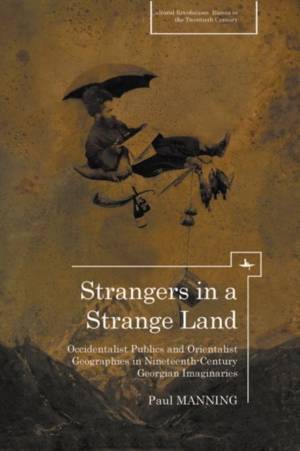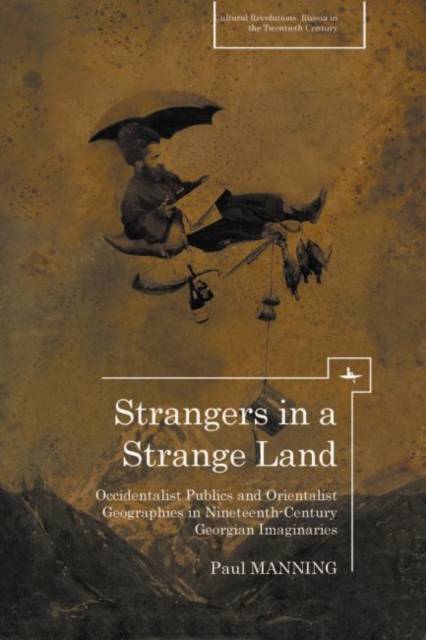
- Afhalen na 1 uur in een winkel met voorraad
- Gratis thuislevering in België vanaf € 30
- Ruim aanbod met 7 miljoen producten
- Afhalen na 1 uur in een winkel met voorraad
- Gratis thuislevering in België vanaf € 30
- Ruim aanbod met 7 miljoen producten
Zoeken
Strangers in a Strange Land
Occidentalist Publics and Orientalist Geographies in Nineteenth-Century Georgian Imaginaries
Paul Manning
€ 207,95
+ 415 punten
Uitvoering
Omschrijving
Manning examines the formation of nineteenth-century intelligentsia print publics in the former Soviet republic of Georgia both anthropologically and historically. At once somehow part of "Europe," at least aspirationally, and yet rarely recognized by others as such, Georgia attempted to forge European style publics as a strong claim to European identity. These attempts also produced a crisis of self-defi nition, as European Georgia sent newspaper correspondents into newly reconquered Oriental Georgia, only to discover that the people of these lands were strangers. In this encounter, the community of "strangers" of European Georgian publics proved unable to assimilate the people of the "strange land" of Oriental Georgia. This crisis produced both notions of Georgian public life and European identity which this book explores.
Specificaties
Betrokkenen
- Auteur(s):
- Uitgeverij:
Inhoud
- Aantal bladzijden:
- 345
- Taal:
- Engels
- Reeks:
Eigenschappen
- Productcode (EAN):
- 9781936235766
- Verschijningsdatum:
- 1/06/2012
- Uitvoering:
- Hardcover
- Formaat:
- Genaaid
- Afmetingen:
- 156 mm x 234 mm
- Gewicht:
- 662 g

Alleen bij Standaard Boekhandel
+ 415 punten op je klantenkaart van Standaard Boekhandel
Beoordelingen
We publiceren alleen reviews die voldoen aan de voorwaarden voor reviews. Bekijk onze voorwaarden voor reviews.











